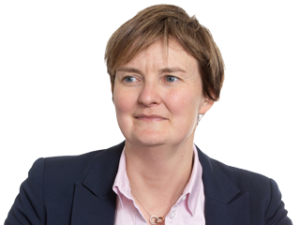Capital allowances have always provided a valuable tax relief for businesses to enable them to reduce their taxable profits or increase losses for future benefit – both resulting in more cash in your business. With the increase in corporation tax to 25% from 6 April 2023 and the current economic conditions, are you maximising your claims?
As a business, when you incur expenditure it will either be capital or revenue in nature. Capital revenue as a starting point is not deductible for tax purposes, however relief is provided by way of capital allowances. Capital allowances can be claimed on items which you keep to use in your business – plant and machinery (P&M). There are different types and rates of capital allowances, some of which are more favourable than others. It is important to note that generally the relevant assets must be owned by the business; any assets leased or under hire purchase have their own special rules.
Annual Investment Allowance
The headliner for the past few years has been the Annual Investment Allowance (AIA) which provides 100% immediate tax relief on assets which qualify as P&M. When it was first introduced in 2010, the threshold was only £50,000, however this eventually reached £1,000,000 in January 2019 initially as a temporary increase, then becoming permanent and still stands today. In a partnership, AIA is only available where all the members are individuals. If your business is in a group, you are only entitled to one AIA allowance.
There is also the First-Year Allowance (FYA) which permits 100% deduction of the cost, but with no limit. This is commonly seen in respect of electric cars and those with zero CO2 emissions.
Super-deduction
2021 saw the arrival of the super-deduction, the then Chancellor Rishi Sunak announcing it as “the biggest business tax cut in modern British history”, although arguably a way of softening the impact of the soon to be hike in Corporation Tax.
The super-deduction provided a FYA of 130% for main pool and 50% for special rate (SR) P&M expenditure incurred between 1 April 2021 and 31 March 2023. For those of you who know your allowances, the special rate includes ‘integral features’ (i.e. items such as electrical power and lighting, hot and cold water, heating, ventilation and cooling).
Most businesses are currently finalising their tax returns with their final super-deduction claims at the moment. A key point to be aware of is that not all expenditure on plant and machinery will qualify for either the super-deduction or the SR allowance. For example, expenditure on assets which are purchased in order to be leased out will not generally qualify. In addition, the contract for the purchase of the asset must have been entered into after 3 March 2021.
Full expensing
As the era of the super-deduction was drawing to an end, many businesses faced with increasing costs started to wonder what the Government would do to stimulate investment. Full expensing was announced by the Chancellor in the 2023 Spring Budget and applies to expenditure incurred from 1 April 2023 to 31 March 2026, to companies (or corporate partners of partnerships) only.
Main pool assets will be eligible for 100% relief and a 50% first-year allowance will be available for qualifying special rate assets. For example, if a business spends £1 million of qualifying expenditure, under the full expensing regime, this would offset against income, saving tax of up to £250k at a 25% rate of corporate income tax. Full expensing is only available for expenditure on P&M; there are also some notable exclusions, such as cars, as well as many assets used for leasing.
Writing Down Allowances
No capital allowance article would be complete without a quick mention of Writing Down Allowances (WDA). WDA will apply if assets do not qualify of AIA or FYA, or when the maximum limit has been reached. The WDA enables your business to offset a % rate every year a reducing balance basis.
Assets must be allocated to the correct pool; main rate pool attracts a rate of 18% and special rate pool (integral features) attracts a rate of 6%.
Property and capital allowances
Property and capital allowances has always been a complex area. If you are acquiring, building, fitting out or refurbishing commercial property be sure to seek advice to maximise any claims. Claims are also possible for the communal areas in apartment blocks that are held as investments, or serviced apartments and furnished holiday lets held as investments. If you are buying a commercial property take advice before the purchase.
As well as having access to the range of allowances previously mentioned, there are a couple of other additional mechanisms for relief with property:
SBA
The Structures and Buildings Allowance (SBA) was introduced in 2018 and provides tax relief for expenditure incurred on certain assets that would not previously have qualified for capital allowances. This includes works on structures, walls and ceilings.
Relief is available on a straight-line basis currently at 3% per annum and is not available for expenditure incurred on buildings which are in ‘residential use’. When SBA is claimed there is a reduction in the base cost of the property for Capital Gains Tax purposes when the asset is subsequently sold.
Land Remediation Relief
Companies that acquire contaminated or derelict land for the purposes of their trade or UK property business can claim an enhanced deduction of 150% for clean-up costs.
It is available to developers, investors and occupiers, and for both commercial and residential property. The relief is not available to partnerships; however, a company that is a member of a partnership can claim.
What now?
With businesses starting to adjust to the increase in corporation tax to 25%, access to capital allowances is increasingly valuable. Planning is key. Before you undertake large items of spend, seek advice to ensure that any claims can be maximised, to reduce the amount of tax that you pay and increase cash flow.
If you would like further guidance, please contact Catherine Heyes.

